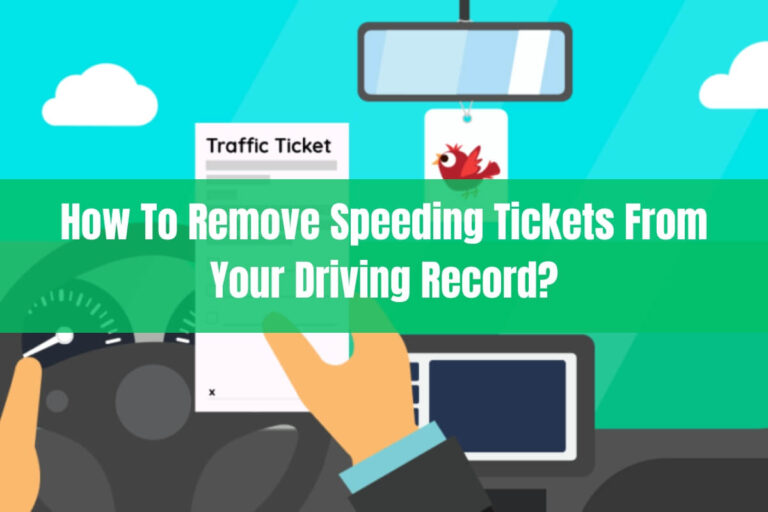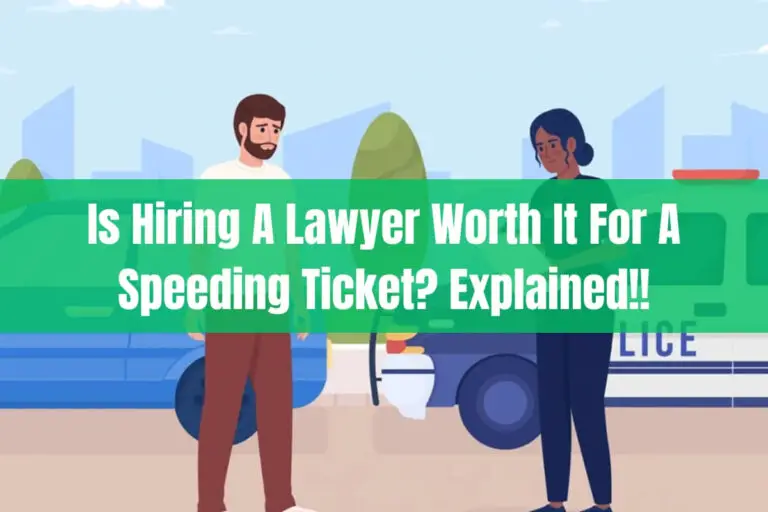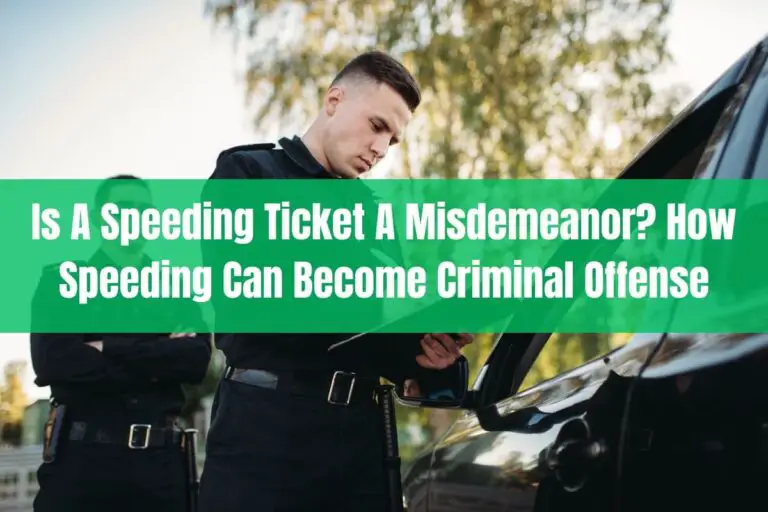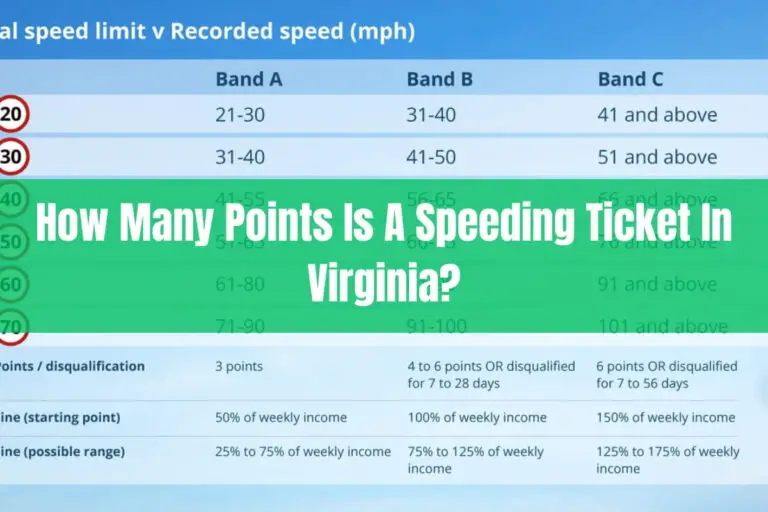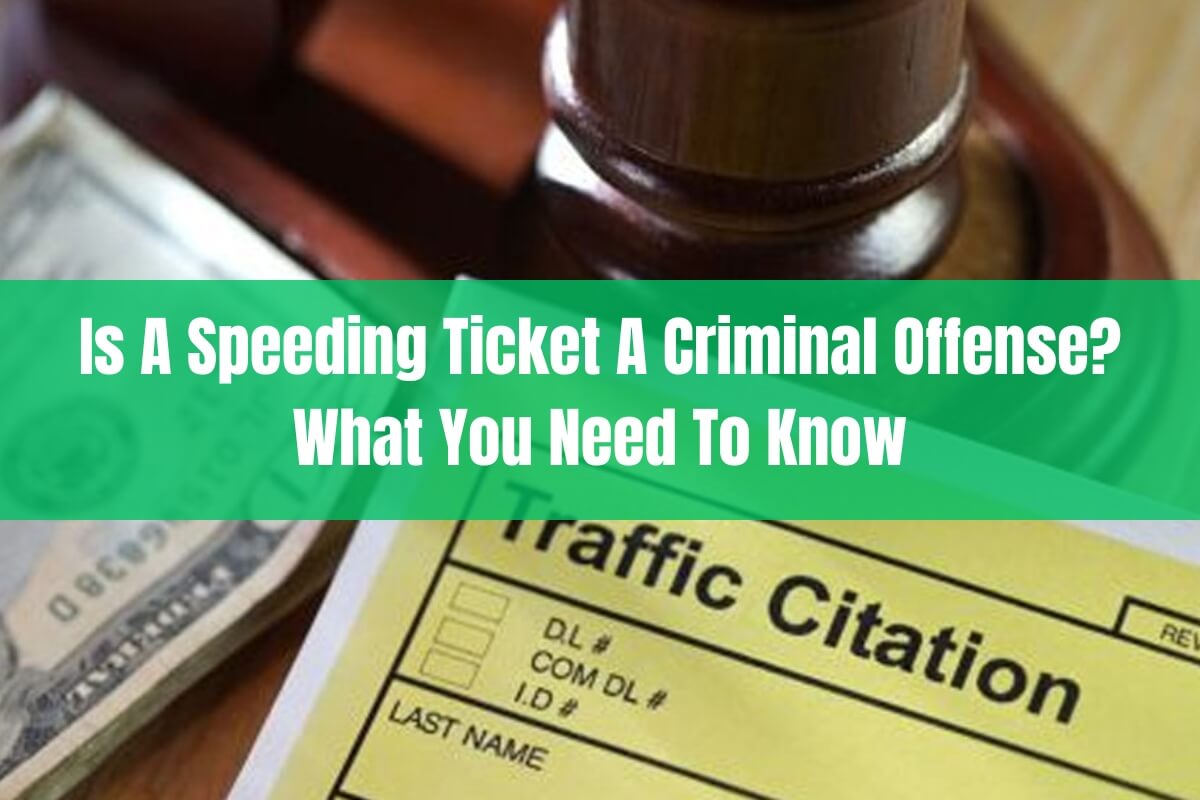
Receiving a speeding ticket is never a pleasant experience. You may end up with a fine, points on your license, or forced traffic school attendance. But could a speeding violation also land you with a criminal record?
Most speeding infractions remain civil violations that don’t lead to criminal charges. However, certain aggravating factors can cause a routine speeding ticket to escalate into a misdemeanor or felony offense.
Below we’ll outline what determines if a speeding violation becomes a criminal offense. We’ll also provide examples of criminal speeding charges and their potential penalties.
Understanding the difference can help you avoid heightened consequences if caught over the speed limit.
What Factors Make a Speeding Ticket a Criminal Offense?
Several key factors influence whether a speeding ticket rises to the level of a criminal offense, including:
Excessive Speeding Over the Limit
How much you exceed posted speed limits plays a major role. For example, going 5 or 10 mph over is typically a civil infraction, whereas 20 to 40+ mph over crosses into criminal territory. The exact thresholds vary by state.
Repeat Traffic Offenses / Habitual Speeding
Your prior driving history also matters. Those with multiple prior tickets for speeding or other traffic violations face a greater likelihood of criminal charges for recurring issues.
Reckless Driving
Driving excessively fast in dangerous conditions like heavy traffic or bad weather can demonstrate a “willful or wanton disregard for safety”. This can trigger criminal charges for reckless driving.
Property Damage
Speeding that contributes to damage of other vehicles or property may prompt criminal mischief charges in addition to the moving violation.
Bodily Injury
When speeding leads to injury or harm to others, the violations often escalate to misdemeanor or felony charges. The severity escalates further if the injuries are serious or fatal.
Examples of Criminal Speeding Charges
Here are some examples of speeding-related criminal offenses and their common classifications:
Misdemeanor Speeding Offenses
- Driving 20 to 40 mph over the speed limit – Often charged as misdemeanor reckless driving
- Going over 100 mph – High rates of speed used as basis for reckless endangerment misdemeanors
- Speeding in school zones – Typically misdemeanor charges even at lower excess speeds
Misdemeanors can lead to up to 1-10 year in jail in addition to fines, license suspension, and other penalties.
Felony Speeding Offenses
- Driving over 140 mph – Extreme speeding used as proof of “wanton disregard”
- Speeding that causes injury or death – Vehicular assault or homicide charges
Felony charges have even more severe penalties including years in prison, heavy fines, and license revocation.
What are the Consequences of Criminal Speeding Charges?
The punishments for criminal speeding charges are much more severe than a routine civil traffic ticket. Potential consequences include:
- Heavy fines – Criminal fines often start at several thousand dollars and escalate from there.
- License suspension – Even first-time offenses typically prompt a suspended license for 6 to 12 months.
- Probation – Many criminal speeders get probation lasting months to years rather than jail time. But violating probation can still land you behind bars.
- Potential jail time – Misdemeanors have up to 1 year in jail, felonies up to 10+ years in state prison.
These lasting penalties make it vital to consult an attorney if facing criminal speeding accusations rather than civil traffic citations.
How Can You Fight Criminal Speeding Charges?
The first step is contacting an experienced traffic ticket attorney or criminal defense lawyer. An attorney may be able to:
- Plea bargain charges down to an infraction – Argue that aggravating factors weren’t present to warrant criminal charges.
- Help get penalties reduced – Even if charges remain, push for lower fines, alternate sentencing.
- Avoid license suspension – At minimum try to reduce suspension period if possible.
- Defend against excessive speeds – Challenge police radar readings or contest reported speed.
With severe consequences on the line, those facing potential criminal charges should strongly consider legal representation. Don’t take the matter lightly.
Key Takeaways: Speeding Tickets and Criminal Offenses
- Most speeding tickets remain civil infractions that don’t lead to a criminal record. They resolve by paying a fine.
- But added factors like excessive speeding, injuries/damage, or repeat offenses can result in criminal charges.
- Criminal speeding charges can be misdemeanors or felonies depending on the circumstances.
- The punishments for criminal speeding convictions are much harsher than a civil ticket. They can include heavy fines, license suspension, and jail time.
- Consulting an attorney is highly recommended if facing criminal speeding accusations to attempt plea bargains or penalty reductions.
We hope this breakdown helps explain the difference between routine civil speeding tickets versus potential criminal speeding violations. Don’t assume a traffic stop will just result in a simple fine. Many factors influence when tickets escalate to misdemeanors or felonies.
Understanding these nuances can help motorists avoid heightened legal consequences from a speeding violation turning criminal. If you find yourself with a ticket alleging excessive speeding or other aggravating factors, contact a lawyer right away for guidance responding to the charges.

